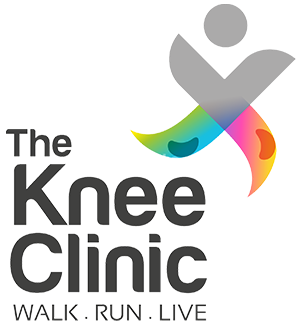What is Rheumatoid Arthritis?
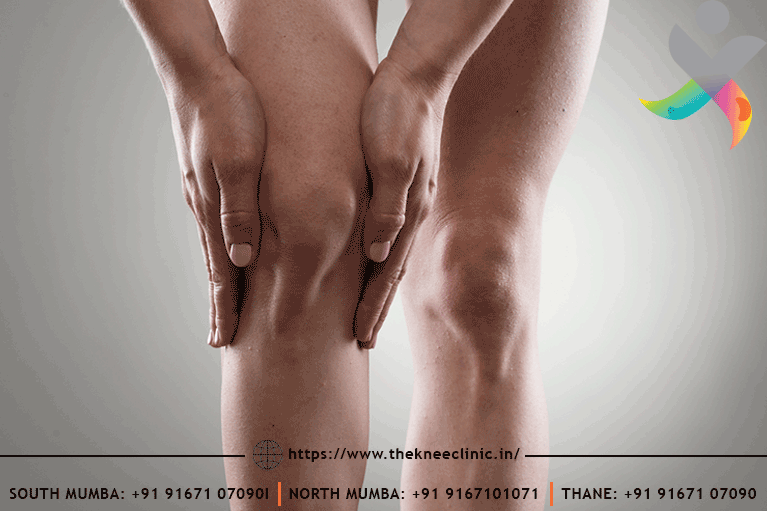
Rheumatoid arthritis (RA) is a condition that can cause pain, swelling, and stiffness in joints.
It is known as an autoimmune condition. This means that the immune system, which is the body’s natural self-defence system, gets confused and starts to attack your body’s healthy tissues. It can affect anyone of any age. It can get worse quickly, so early diagnosis and intensive treatment are important. The sooner you start treatment, the more effective it’s likely to be. To understand how rheumatoid arthritis develops, it helps to know how a normal joint works. You can refer to our video on parts of the knee on https://www.youtube.com/c/TheKneeClinicbyDrMitenSheth.
Symptoms
The main symptoms of rheumatoid arthritis are:
• Joint pain
• Joint swelling, warmth and redness
• Stiffness, especially first thing in the morning or after sitting still for a long time.
Other symptoms can include:
• Tiredness and lack of energy (fatigue)
• Not feeling hungry
• #WeightLoss
• Dry Eyes and/or chest pain – as a result of inflammation
RA can affect any joint in the body, although it is often felt first in the small joints in hands and feet. Both sides of the body are usually affected at the same time, in the same way (symmetrical affliction of joints). A few people develop fleshy lumps called rheumatoid nodules, which form under the skin around affected joints. They can sometimes be painful.
Plausible Causes
• Age – RA affects adults of any age, although most people are diagnosed between the ages of 40 and 60.
• Sex – RA is 2-3 times more common among women than men.
• Genetics – It is unclear what the genetic link is, but it is thought that having a relative with the condition increases your chance of developing the condition.
• Weight – If you are overweight, you have a greater chance of developing RA.
• Smoking – Cigarette smoking is an environmental factor and significantly increases the risk of developing the condition.
Diagnosis
A diagnosis of RA is based on your symptoms, a physical examination and the results of x-rays, scans and blood tests. BloodTests may be used to find changes in your blood that are produced by inflammation. Raised Anti-ccp Antibody levels aid diagnosis. ESR and CRP are generally used to monitor the disease. RA factor levels are prognostic (they tell us if the disease will be easy or difficult to treat). Xrays and other tests will show any damage caused to the joints by the inflammation.
Treatment
There are a variety of treatments available for RA. The earlier the treatment, the more likely it is to work.
Drugs
There are four main groups of drugs that are used to treat RA. These are:
• Painkillers
• Non-steroidal anti-inflammatory drugs (NSAIDs)
• Steroids
• Disease-modifying anti-rheumatic drugs (DMARDs)
Many people with rheumatoid arthritis need to take more than one drug. This is because different drugs work in different ways. Your drug treatments may be changed from time to time. This can depend on how bad your symptoms are, or because something relating to your condition has changed.
Painkillers can help to relieve the pain caused by RA, but should not be the only treatment used. There are many types and strengths of painkillers available. Tablets with Paracetamol and/or Tramadol, Buprenorphine or Fentanyl patches are a few examples.
Non-steroidal anti-inflammatory drugs (NSAIDs) can be used to help control symptoms of pain, swelling or stiffness. They can be used in combination with painkillers. NSAIDs start working within a few hours, and the effects can be felt for up to a whole day. Etoricoxib, Naproxen, Aceclofenac, Diclofenac, Etodolac, Indomethacin are a few examples.
Disease-modifying anti-rheumatic drugs (DMARDs) are used in a combination. There are three types of DMARDs:
• Conventional synthetic DMARDs including Methotrexate, Leflunamide, HCQs, Sulfasalazine
• Biological therapies including Toclizumab, Abatacept, Etanercept, Adalimumab, Rituximab
• Targeted synthetic DMARDs including Tofacitinib, Baracitinib
You will need to have regular blood tests if you take DMARDs, as they can affect your liver.
It may be a while before you notice your DMARD working – possibly a few months. It is important to keep taking your medication during this time.
Steroids help to reduce the pain, stiffness and inflammation.
They can be used as a tablet, an injection directly into a painful joint or into a muscle.
They are usually used to provide short-term pain relief. This could be during a flare-up or while you are waiting for your DMARD medication to start working. Corticosteroids are used in this way because long-term use can have serious side effects, including weight gain, osteoporosis and thinning of the skin.
Living with rheumatoid arthritis
Flare-ups
When your symptoms get worse, this is known as a flare-up. These can happen at any time, but can occur after you have been stressed or had an infection. Over time, you may get better at noticing the early signs of a flare-up. If you’re having regular flare-ups, you should mention this to your doctor. It may be that you need to review your treatment.
Here are a few things you can do to help yourself during a flare-up:
• Keep taking your medication at the doses you have been prescribed.
• Do gentle exercises. If a type of exercise always causes a flare-up, its best to find another one. High-impact exercises such as step exercises, or contact sports, such as kabaddi and football, are more likely to cause problems. Swimming, walking, gentle cycling and aqua aerobics generally put less strain on your joints. Yoga and tai chi are generally thought to be suitable for people with RA. You should also break up long periods of sitting with light activity.
Foot problems
Foot problems for those with RA include:
• Pain and soreness, warmth and swelling that lasts at least a few days
• The foot changing shape
• Difficulty walking
• Corns or calluses, and nail problems
• Infections such as athletes’ foot, verrucas or bacterial infections.
If these problems are left untreated, they can lead to the infections spreading and, eventually, to ulcers forming. It is therefore important to see a foot and ankle specialist. They can give advice on footwear, information on how to treat foot problems yourself, and can provide special insoles.
Physiotherapy & Hydrotherapy
A physiotherapist can suggest suitable exercises to improve fitness, flexibility and strength. You may also find that hydrotherapy (aquatherapy) helps to ease your symptoms. This involves doing special exercises in a warm water pool, under the supervision of a trained physiotherapist.
Occupational therapy
Occupational therapists can help you keep doing the activities you need or want to do – at home or at work. They will work with you to find different ways of doing things.
The benefits of seeing an occupational therapist include:
• Improved confidence
• Being able to do more things, at home or at work
• Being able to live independently at home
Aids and adaptations
Aids can help you manage everyday tasks such as bathing, dressing, and cooking. These can include shoe horns, rails or handles, and shower seats. Adaptations are bigger items that can help you move around your home. These items include wheelchairs, fixed ramps and baths with built-in handles.
Surgery
Surgery is sometimes needed for those with rheumatoid arthritis. This can be to reduce pain, correct joint shape or restore your ability to use your joint. The types of surgery people with rheumatoid arthritis have are detailed below.
Foot Surgery: Examples of this type of surgery include:
• Removal of inflamed tissues around the joints of the forefoot
• Removal of the small joints in the ball of the foot
• Straightening of toes
• Fixing of joints.
Finger, hand and wrist surgery: Examples of this type of surgery include:
• Carpal tunnel release
• Removal of inflamed tissue in the finger joints
• Release of tendons in the fingers (this is used to treat unusual bending).
Arthroscopy: During the operation, an arthroscope is inserted into the joint through a small cut in the skin, so the surgeon can see the affected joint. Damaged, inflamed tissue is then removed. You usually do not have to stay overnight in hospital for this type of surgery, but the joint will need to be rested at home for several days.
JointReplacement: Some people with RA need surgery to replace part or all of a joint. This is known as a joint replacement, or arthroplasty. Common joint replacements include the hip, knee and shoulder. Replacement of these joints is a major operation that involves a few days in hospital, followed by rehabilitation, which can take months. The latest artificial joints generally last for 10 to 20 year.
Diet and nutrition
There’s no single diet that will help everyone with RA. However, some people find that making changes to their diet helps their symptoms. There is little evidence that taking supplements will improve rheumatoid arthritis, or its symptoms. What is important is that you do not waste money on expensive supplements that will not do much.
Folic acid may be prescribed if you are taking methotrexate, and calcium and vitaminD may be prescribed if you are taking steroids. A healthy, balanced diet should contain all the vitamins and minerals you need. Complementary treatments can be useful when used alongside prescribed medicines for the treatment of RA. However, they should not replace your prescribed medicines.
Outlook
If you smoke, it’s a very good idea to quit after a diagnosis of rheumatoid arthritis. This is because:
• Rheumatoid arthritis may be worse in smokers than non-smokers
• Smoking can weaken how well your medication works.
Physical activity is also important, as it can improve your symptoms and benefit your overall health. Blood tests and x-rays will help your doctor assess how fast your arthritis is developing and what the outlook for the future maybe. This will also help your doctor to decide which treatment to recommend. The outlook for people with rheumatoid arthritis is improving all the time, as new and more effective treatments become available.
For consultation, please contact TheKneeClinic on ph +91 9136401071 or click on the website link
https://www.thekneeclinic.in/contact.php
Recent Posts
-
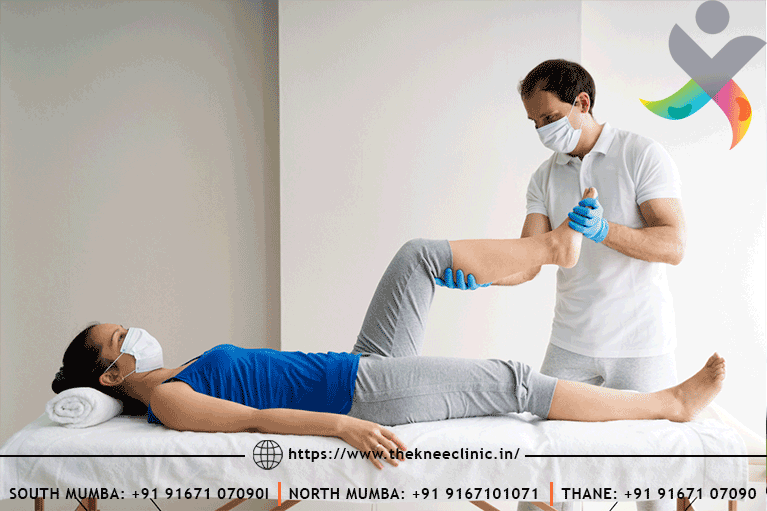 Can the Coronavirus affect my bones and joints?08 Mar 2024
Can the Coronavirus affect my bones and joints?08 Mar 2024 -
 Should One Avoid The King Of All Exercises- SQUATS?08 Mar 2024
Should One Avoid The King Of All Exercises- SQUATS?08 Mar 2024 -
 Anterior Knee Pain in Athletes08 Mar 2024
Anterior Knee Pain in Athletes08 Mar 2024 -
 Managing Osteoarthritis From the Kitchen08 Mar 2024
Managing Osteoarthritis From the Kitchen08 Mar 2024 -
 What is gout?08 Mar 2024
What is gout?08 Mar 2024 -
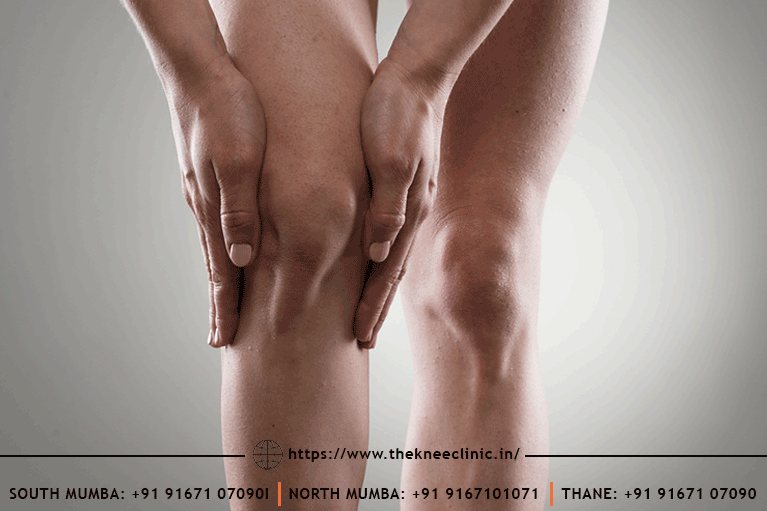 What is Rheumatoid Arthritis?08 Mar 2024
What is Rheumatoid Arthritis?08 Mar 2024 -
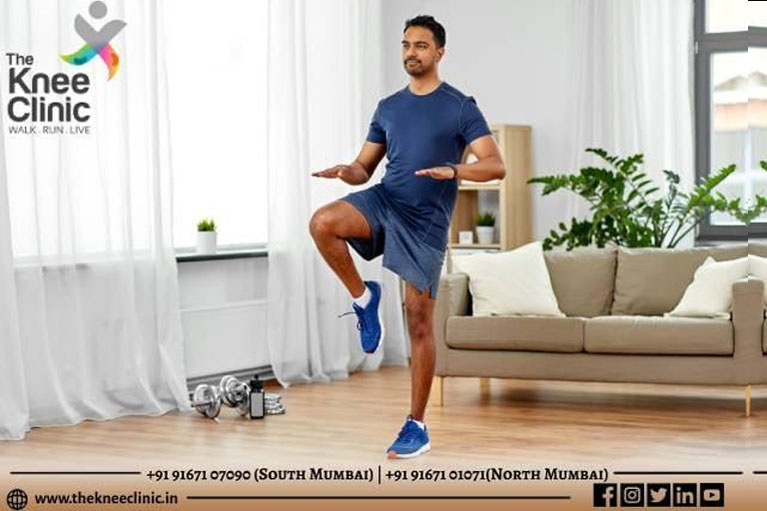 Exercises07 Mar 2024
Exercises07 Mar 2024 -
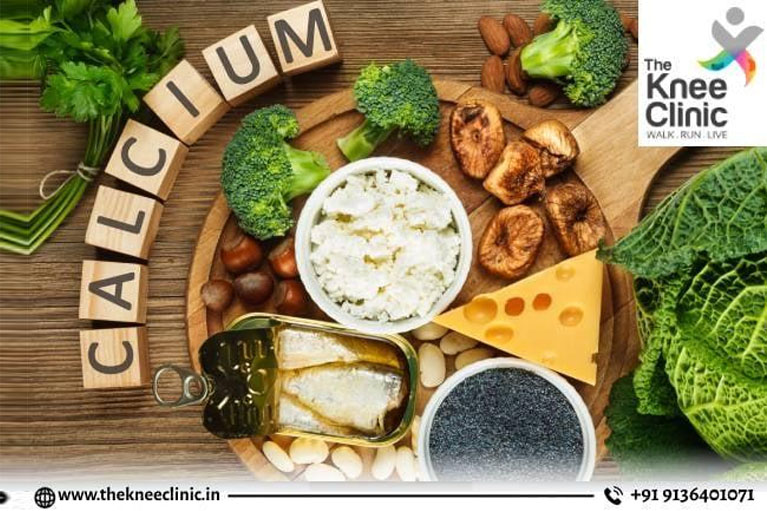 What is Calcium and what does it do?07 Mar 2024
What is Calcium and what does it do?07 Mar 2024
